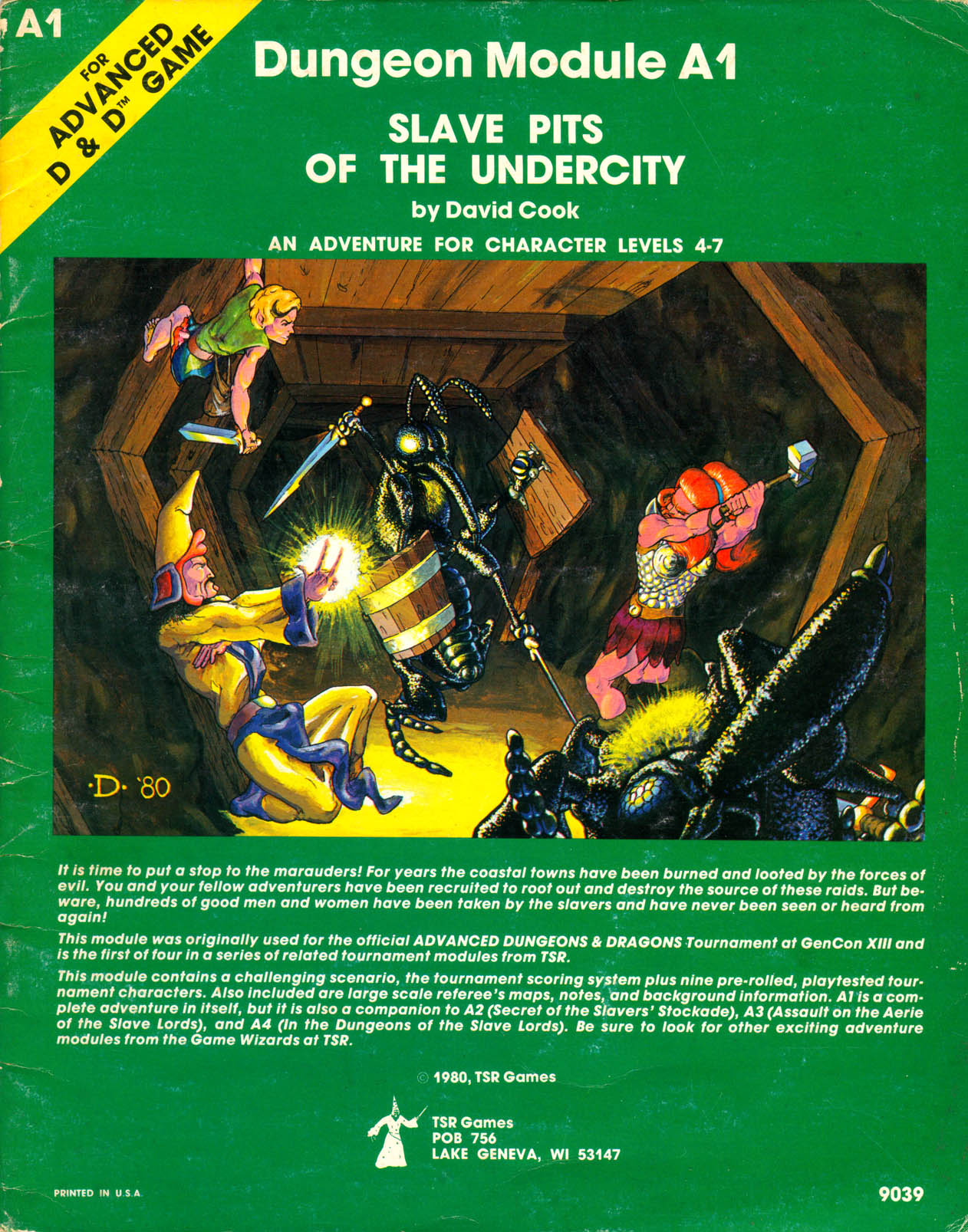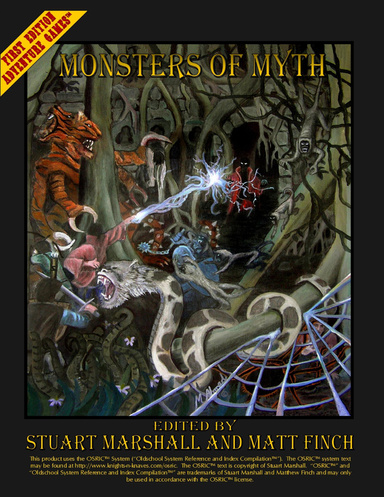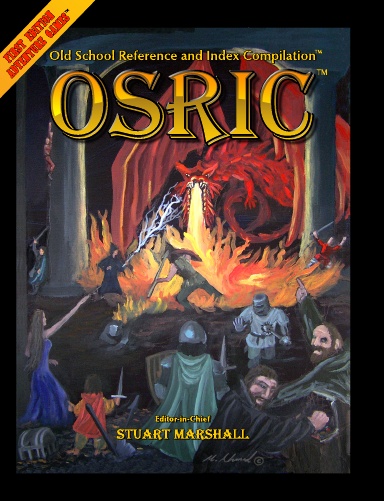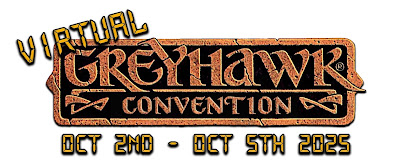This post assembles news items I’ve curated in draft blog posts for awhile now alongside some hot-of-the-presses news that has caught my eye.
Memorials
The Passing of François Marcela-Froideval
Frank Mentzer reported on Facebook the sad news about the death of François Marcela-Froideval on 17 June 2025. I didn't know him personally, but I have purchased a few of his Black Moon Chronicles graphic novels, and fondly recall Gary Gygax writing about their projects together in Dragon Magazine columns. My condolences to his family, friends, and fans.
For fans of the Black Moon Chronicles (Chroniques de la Lune Noire), Olivier Ledroit, one of the main artists of the series (all covers, interiors of 5 issues) mentioned on Facebook that the next volume in the series is due to release before year-end. The author, François Marcela-Froideval just passed away a couple of months ago in June, so it's likely this will be the last volume in the series.
I lightly edited Kit's announcement.
Jennell Jaquays Update
We have one final spread that was a miscommunication in editing, it's being added this week, and it's getting out. I can't wait to have it finished.
We'll also have the physical edition live on our shop, we have a small number of copies to sell to support Trans Lifeline there too. We're in the midst of a redesign of this site, but it'll be ready soon too.
OSR News
We have just posted a manuscript draft of the full Player Guide for OSRIC 3. This draft includes the changes I made to chapters 1-4 based on comments from all of you! This is for those of you who are AD&D rules experts or editors to make comments that will catch issues before we go to layout.
In the same ODD74 discussion, Attronarch mentioned that the new monthly APA was forming to continue A&E’s long tradition, and three issues have released thus far: - Issue #3, September 2025
- Issue #2, August 2025
- Issue #1, July 2025
Gary’s World is an ongoing free 1e zine published by Vince Garcia in the Files section of the First Edition AD&D (Gygaxian AD&D) Facebook group. The group is private, so you'll need to request membership to access the files. Vince has produced fourteen issues since August 2024, ranging in size from 53 to 263 pages per issue! Issue #14 just debuted on 30 August 2025, so get it while it’s hot!
Trent Smith’s Brink of Calamity Greyhawk-ready AD&D 1e campaign setting—it slots in nicely into the northern Wild Coast—was reviewed on 30 August 2025 by Bryce Lynch at tenfootpole.org with a “no regrets” rating, Bryce’s second-highest rank. If you’re considering using it in your home campaign, Michael “Zudrak” Gross has been decoding Trent’s Greyhawk-equivalent names in a thread on Dragonsfoot.
casl Entertainment New Greyhawk Releases
Carlos Lising is a bright light among Greyhawk fandom, and his newly-released titles that caught my eye include:
- LF2 The Kaldonna Offensive: Like a pinprick of light floating in an ocean of night, so stands the village of Kaldonna upon the devastated landscape of the See of Vanthrace. Eager to complete their murder of the nation, the Great Empire's army closes in upon the settlement as the noose circles the neck of the condemned. Can your heroes avert disaster and represent salvation for those refugees huddling for safety within Kaldonna's ramshackle walls? LF2 presents the second chapter in the Legio Fatis Campaign series begun with LF1 The 9 (which I playtested four years ago at Virtual GaryCon 2021, and thoroughly enjoyed then and in our post-convention follow-up sessions).
- G5 In the Hall of the Mountain Queen: The Grand Duchy of Geff is a war-torn and beleaguered place. Yet an opportunity to break the back of the monstrous army that holds the land and its folk under the yoke of servitude has arisen! Do your PCs have the courage and mettle to turn the tide of war against the giants -- and put an end to their terrible reign?
- A10 Crescendo & Coda: This module represents the thrilling finale to the Flesh Traders series of adventure modules in A5 - A9. It can be used as a sequel to the Saga of the Flesh Traders or as a stand-alone adventure.
The titles above do not do not scratch the surface of Carlos’ recent publications, which you can review in full on the casl Entertainment adventures web site.
Greyhawk Releases at DMs Guild
There are a lot of Greyhawk-related or -inspired releases at DMs Guild—far too many for me to track with any depth—so these are a sampling of ones that have pinged recently in my radar:
- DB1 - The Burneal and the North by Derek Long, a 75 page gazetteer for the region; Derek has three other Greyhawk sourcebooks, including one on Schwartzenbruin and another on the Rhenne
- Rick "Duicarthan" Miller has published two Greyhawk titles: Vale of the Mage Gazetteer and Magic Items Compendium (hundreds of Greyhawk campaign magical, including references to source material to expedite research)
Cannibaal Publishing News
- Forgotten Tomb of Acererak, which was also recently promoted on Greycast: the Cairn Hills are a mysterious place with untapped stories to tell; we captured the essence of this place and expanded the lore of the area and the complicated relationship there between Greyhawk and Urnst
- The Telchuria gazetteer is being worked on currently; expect more news by December/January; when completed, you can explore the frozen tundra and wastelands of the north pole of Oerth
Secrets of Blackmoor, Rob Kuntz, and ArneCon 3 News
Griff is also continuing to organize Arnecon 3 from 10-12 October 2025. Rob will not be attending this year, but the convention still looks like a wonderful time if you can attend!
Greyhawk Fanzines, Podcasts, and LiveStreams
Greyhawk fanzines and publications have a long tradition dating back to the dawn of the 1990s internet, and have gained new traction with new titles released in the past year.
Fanzines
- Greyhawk Grimoire released issue #5 on 30 June 2025, and issue #6 is in the works with Rick “Duicarthan” Miller recently joining the staff as their new layout and design resource (Rick was the longest-duration editor for the Oerth Journal)
- Samuel “Samwise” Weiss has been sharing his own take on “The New Canon” on the Greyhawk Grimoire site too, in several short and lengthier essays spanning a variety of demographic and historical topics (and in GG itself, too)
- Oerth Journal #37 and Visions of Greyhawk #4 are both still in the works and I will have pieces included in each zine; many great issues in the back catalog are well-worth checking out if you’ve not done so before!
Podcasts and LiveStreams
Greyhawk is blessed with fans who publish in many formats, including podcast and livestreams:
- Greycast continues to deliver the goods, with recent podcast topics covering The Circle of Eight, the Free City of Rel Astra, with Matt Finch guesting to discuss OSRIC 3.0, and a couple of older but still-recent-ish Duchy and County of Urnst, and hosting the crew who produced the World of Greyhawk Gazetteer Revised back in December 2024, with many others to check out too
- Paul Stormberg’s 14-part D&D history podcast When We Were Wizards (available on most major platforms) explores Gary Gygax, D&D, and TSR Hobbies, the cultural impact of D&D, and the profound personal impact it had on Gary, his family, friends, and colleagues. The series tells the story with the voices of the people who were there, through never before released interviews, personal letters, and internal company documents.
- Jay Scott, Anna Meyer, and Mike Bridges interview Erik Mona and Gary Holian on Legends & Lore #308, who discuss the publishing history and content of the Living Greyhawk Gazetteer; other recent and cool topics include a deep dive on the GH98 Player’s Guide to Greyhawk, and the Nyr Dyv and its Surrounding Lands, amongst many others!
- On 16 December 2024, I was interviewed by Ben “Through Ultan’s Door” Lawrence for the second season of his Into the Megadungeon podcast. We had a fun discussion about mega-dungeons in general and Castle Greyhawk in its many incarnations--including some long-time recurring dreams I've had about such environs--and I’ll share the relevant details when the episode posts :D
grodog in Fight On! Magazine
Issues #15 and #16 of Fight On! Magazine are published now, and #17 is in layout at the time of this writing: - Issue 15 (July 2024) is thematically dedicated to J. Eric Holmes, editor of the 1977 original Basic Set ("Holmes Basic") and follows on the heels of #14, published in April 2014, so #15 marks a wonderful return to publishing after a 10-year hiatus! Issue 15 features one of one of my previously-unpublished Castle Greyhawk dungeon maps (“The Recessed Gallery Level”) and my D&D origin story as part of a Holmes Basic panel interview with Aron Clark about his new OSR clone, Holmes & Clark
- Issue 16 (February 2025) is dedicated to David A. Trampier and presents Allan’s “Giants in the Earth” article detailing Wormy, Irving, Ace, Gremorly, Solomoriah, and the rest of the Trampier’s beloved characters in AD&D format.
- Issue 17 (soon forthcoming!) will include some of my new monster designs, and a piece on the history of the OD&D thoul (including my own rendition of it for AD&D)
Tales of Peril, Second Edition
Unfortunately Tales of Peril v2 will not be ready in September-ish 2025 as I hoped; we're still working through legalities to try to secure one new content item, so I've taken the extra time to work on more content updates:
- I've comprehensively re-edited all of Maze of Peril and “Trollshead,” with “The Sorcerer's Jewel” in-progress; I intend to reedit "In the Bag" and perhaps “Witch Doctor,” if it needs it (it will at least be proofread again)
- I've also finished re-proofreading “Confessions of a Dungeon Master” and Chris’ “Boinger & Zereth PC Summaries,” with Eric Frazier's and Zach Howard's essays in queue
- I've not reedited the A&E pieces since ToP is basically their only record outside of A&E itself, so they'll remain untouched editing-wise (although they will also be re-proofed)
We plan to include a new B&Z short story written and illustrated by Chris Holmes, and should have some new additions to Eric's and Zach's essays, along with another new JEH non-fiction piece discovered by Zach.
We're also planning to issue the book in a TBD electronic format, to help with overseas folks and those who prefer e-readers.
I don't have a new target date for publication, but it seems likely that we'll not release it until GaryCon in March 2026, perhaps by year-end if things come together more-quickly than they have to date, but I'm not holding my breath ;)
If you are interested in the reprint, you can email Black Blade Publishing at tacojohndm@yahoo.com to ask to be notified when the reprint will be available.
grodog’s Virtual GreyhawkCon 6 Events
Event registration began yesterday for Virtual GreyhawkCon 6, and I managed to submit my events at the last minute yet-again. This year I’m running three events, playing in three, and participating in the closing ceremonies panel, so it’ll be a fun and full weekend filled with ‘hawk :D
I’m DMing two different playtest sessions for my “The Gnoll Raiders’ Cairn” event, one with PCs of levels 3rd-5th on Friday (there’s still one seat open as of the time of this writing), and a second on Saturday with 4th-7th pregens:
LEGIO V - Explore grodog’s Greyhawk – The Gnoll Raiders’ Cairn
Explore grodog's Greyhawk campaign in a playtest for an upcoming scenario my crew may delve soon! Particularly-ferocious gnoll bands destroyed a Fort Gellner patrol, and looted three merchant and mining caravans en route to the City of Greyhawk, striking along the Urnst Trail between the Fluted Cairn and the Shrine of St. Cuthbert by the Lake. Flinds are suspected to lead them. Tracked to a newly-discovered cavern with a corkscrewing, descending stair, the party is hired to clear out the gnolls’ deep and recover the merchant wares. A reward of 10% of the value of the recovered goods and the waiver of all treasure taxes is sure to enrich your coffers!
Bring your graph paper, dice, and a healthy dose of paranoid courage! 3rd-5th level pregen characters provided.
The Lake Geneva Legio V began as a handful of gamers who attended Gary Con and the North Texas RPG Con since their inceptions. We have grown over the past few years to include like-minded individuals united by a respect for Gary Gygax and his legacy. We are the dedicated attendees who love conventions for the camaraderie they establish, the Game Masters who run games that span the decades, and the committed gamers who spend these four days in a fervor of dice rolling and old-school good times.
Although events run as LEGIO V Presents use a variety of rule systems, our focus is on games authored by Gary and his contemporaries as well as those systems whose designers pay homage to these pioneers.
This is (probably) the first time that I’m playtesting a convention scenario before I run it in my home group—I say “probably” only because you never know how things go at the table: now that I’ve mentioned the timing in this order, the players will likely jump on the scenario before the con now ;) I’ve playtested many scenarios in regular campaign play before DMing them at cons, but since I whipped this adventure up as a result of some recent writing for Fight On! Magazine’s forthcoming issue #17, and thought it might be a bit more than the current PCs could reasonably tackle, I decided a playtest was in order. I’ll report back on how it goes, and how the PCs fare if they decide to pick up this particular plot hook.

A1 Slave Pits of the Undercity is a TSR classic I look forward to DMing again (and in possible preparation for inclusion in Henry’s solo aquatic campaign), and it’s the first module I bought with my own funds as a kid, earned by working childhood paper routes and lining baseball fields:
LEGIO V - Explore grodog’s Greyhawk – A1 Slave Pits of the Undercity
For years coastal settlements along the Sea of Gearnat have been pillaged and looted by the marauders of the yellow sails, but recently attacks have grown more frequent and vicious, with entire villages disappearing overnight! Recruited to root out and destroy the source of these raids, you and your fellow adventurers have traced the slavers to a fortified compound in the wretched hive of scum and villainy that is Highport, in despoiled Pomarj.
This classic TSR scenario will be run and scored in tournament style. Bring your graph paper, dice, and a healthy dose of paranoid courage! 4th-6th level pregen characters provided.
My gaming schedule includes the following events, which I was quite thankful to get into during event registration yesterday morning:
Friday Night @ 7pm: Grendelwulf’s Repose by Carlos Lising: Heroes of Oerth worthy of the name know that Lord Grendelwulf of Sunndi has shed off his mortality to meet his gods. It should come as no surprise that a man such as he would make many enemies during the course of his life. Can your characters see to it that Grendelwulf's rest remains undisturbed? A World of Greyhawk adventure for character levels 8-12.
As usual, I look forward to Carlos’ games—he’s an excellent DM, and brings his love for 1e and Greyhawk to the fore in his adventures!
Saturday I have two back-to-back games in the morning:
8am (there’s still one seat open as of the time of this writing) Sunken City: Presented by Dice and a Pencil and DM’d by Brian Jagusak: Sunken City by Robert J Kuntz was originally used as the 1st Dungeons and Dragons tournament at GenCon VIII in 1975! Will your exploration of the sunken city of Kalibruhn lead to riches and renown, or an untimely death? Join to find out! Pre-gens will be provided!
I’ve played many of Rob Kuntz’s dungeons over the years, but I’ve not played this one yet, and look forward to the experience!—it’s a particularly interesting scenario to me, given that it’s set in a partially-inundated coastal city where the tidal levels factor into PC access to the ruins. I’ve not played with Brian before, but look forward to his rendition of the module!
...and in the afternoon:
Noon (full event) An Ancient, Bloody Bond by Les “OblivionSeeker” Reno: 576 CY. Ade Swarndeth, a retired Shield Lands scout, asks for the party's help. Two years ago, renegade orc cultists allied with the Horned Society raided Ade's sister's farm, taking his nephew and killing the rest of the family. He has a lead on the child's whereabouts. But with secrets older than the earliest human blood in play, this is no simple rescue mission...
A tie-in with Luke Gygax Presents Melf's Guide to Greyhawk, Volume One: The Borderlands of Iuz, this session has connections with "The Deadsinger of Molag" but requires no knowledge of that adventure. Modified 5E rules, for Levels 5-10.
Les’ earlier Deadsinger event unfortunately conflicted with Carlos’ game on Friday night, so I’ll only get to play this session. Les is a DM who foregrounds the darker greys of Greyhawk in his take on the setting, which always makes for fun and interesting adventures! I’ve played some 5e—mostly with Henry DMing the game with his brother Ethan and me— but I think this’ll be my first 5e convention game.
I’ll wrap up the con on Sunday night at the 6pm Ask the Experts panel discussion which closes the convention, and is always fun!
I wasn’t able to attend vGHC last year due to my USPS work schedule conflicting throughout the weekend, so I’m looking forward to playing and visiting with the community once more!
If you’ve not registered yet there’s still plenty of time to do so, both to submit your own games (there are 47 on the schedule at the time of this writing) and to play too!
Next Up for grodog
After vGHC, the remainder of my winter schedule is light so I plan to fill the rest of 2025 with editing, writing, and designing. I have a few projects to complete in the near-term, including wrapping up my essay on using Anthony Huso’s adventures in Greyhawk (to appear in the forthcoming Saving Throw Zine #2), then the textual updates for Tales of Peril 2nd Edition I mentioned above. Afterward I plan to pickup development work again on some of my Castle Greyhawk levels, which will carry me through into the spring I imagine. Hopefully I can participate at GaryCon again in March 2026—we’ll see, since it grows less definite to attend given our family’s reduced financial circumstances, so I may need to pull the plug in 2026. We’ll see….
Until the next town crier wanders by!
Allan.













:strip_icc()/pic2518110.jpg)

:strip_icc()/pic2426162.jpg)














:strip_icc()/pic1166254.jpg)


